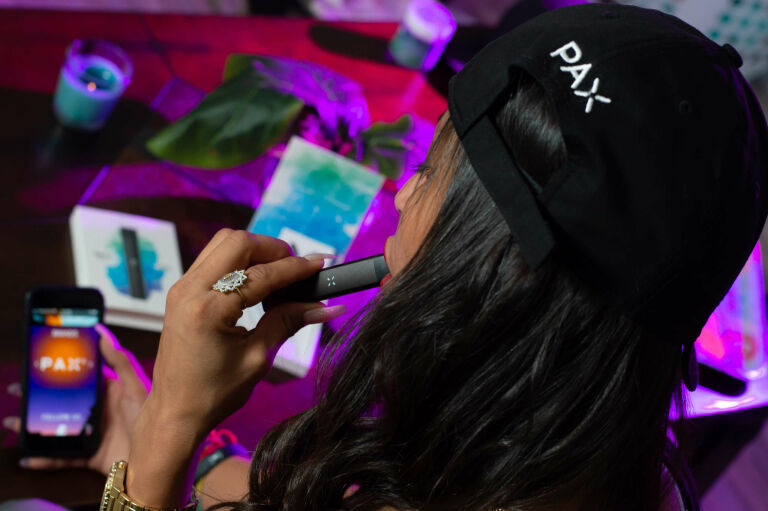When California passed Proposition 215 (the Compassionate Use Act) in 1996, the state permitted the use of cannabis by state-recognized patients who suffer from a variety of conditions if they had a physician’s recommendation.
In 2002, SB 420 was enacted which further clarified the medical marijuana program in the state and laid the foundation for the medical marijuana card program which began in 2004.
Roughly 20 years after the passage of the Compassionate Use Act, Proposition 64 passed, making it legal for adults to purchase cannabis in the state at licensed dispensaries like THCSD– regardless of whether they had a qualifying condition.
In the time since California has legalized recreational marijuana with help from the Medicinal and Adult Use Cannabis Safety and Regulation Act, many have shied away from attempting to obtain a medical marijuana card due to various concerns about privacy or the belief that there isn’t a need given the state’s stance on cannabis.
Over the course of this post, we’ll share some information on:
- what a medical marijuana identification card (MMIC) is
- the benefits of having a medical marijuana card
- what you need to apply for a medical marijuana card
- the conditions which could qualify you for a medical marijuana card in your county
- regulations on reciprocity from state to state
It’s our hope that you will use this information to better understand the medical marijuana card program in the event you or a loved one might qualify.
What is a medical marijuana card?
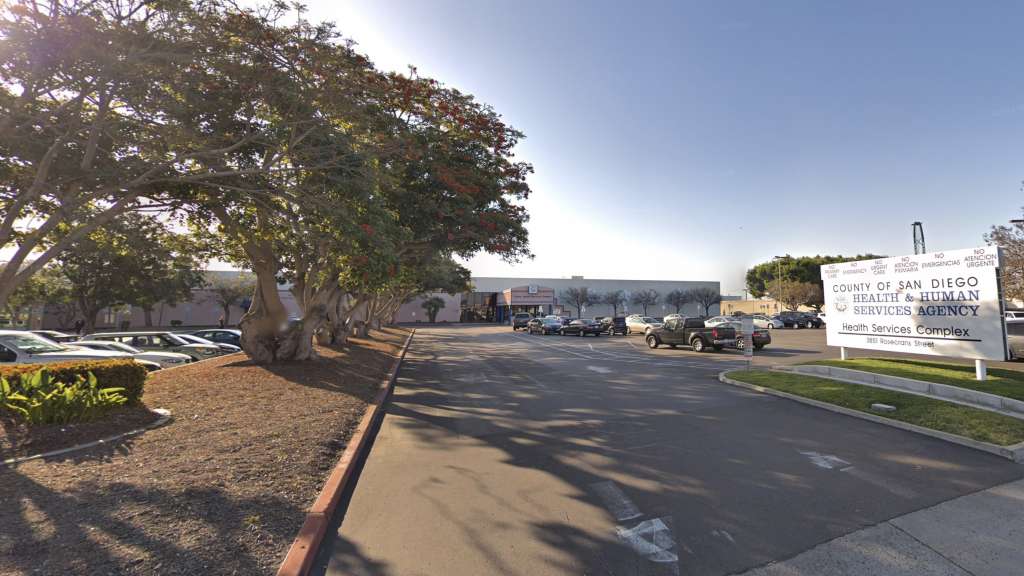
California’s MMIC program is essentially the most ironclad form of protection for the use of cannabis within the state.
Possession of one of these cards brings numerous benefits along with an easy way for law enforcement to ensure that you are indeed a recognized patient by the state in the event of any sort of encounter.
While the program is overseen by the Department of Public Health in Sacramento, a medical marijuana card is issued by the county in which you reside.
For all intents and purposes, we’ll focus on San Diego County in this post as we’re proud to call it home.
If you need to get in contact with a different county based on your residence, you can refer to this listing.
The medical marijuana card itself does not contain any personally identifiable information like your name- only your photo, a unique patient number, information about what county issued the card & its expiration date.
If you’re concerned about privacy & what information is stored, this is direct from the Department of Public Health:
“The administering agency must implement and utilize appropriate procedures and protocols to ensure compliance with all applicable confidentiality laws and requirements of the Health Insurance Portability and Accountability Act (HIPAA).
The Medical Marijuana Application System does not contain any personally identifiable information such as name, address or social security number. It only contains the unique user identification number, and when entered, the only information provided is whether the card is valid or invalid.”
Representatives I spoke with from the DPH stated that any medical marijuana card patient information is destroyed in under 30 days.
What are the benefits of a medical marijuana card?

Aside from the added protection we mentioned earlier, there are some other benefits that come with a county-issued medical marijuana card.
Medical marijuana patients can legally carry more cannabis than recreational customers.
Per Health and Safety Code Section 11362.77, a qualified patient or primary caregiver may possess no more than eight (8) ounces of dried marijuana per qualified patient. In addition, a qualified patient or primary caregiver may also maintain no more than six (6) mature or twelve (12) immature marijuana plants.
California Department of Public Health
While not everyone might need that much cannabis on hand for personal use, medical marijuana cards waive the sales & use taxes levied by dispensaries.
To break it down simply, a recreational cannabis purchase typically includes at least three taxes: sales & use, excise and a local cannabis tax.
Excise taxes are figured into the price of a cannabis product as they represent what a dispensary had to pay to their distributor in order to receive the product that goes on their shelves.
Local cannabis taxes are set by the city or county where the dispensary is located.
Sales & use tax is the same state tax you’d pay on daily purchases like groceries or other retail goods.
It truly comes down to how much you spend at a dispensary throughout the year, but the savings from sales & use taxes could be significant enough to justify the cost & time it takes to be approved for a medical marijuana card.
For example, let’s say you buy an eighth of hybrid flower once per week & some Raw Garden live resin once per month.
Not counting excise tax or the local cannabis tax, your purchase is being taxed at 7.75% in San Diego.
If your eighth is $50 & the extract is $32, your total before sales tax in a month is $232 & if we work in the sales tax for those purchases, you’re at just under $250.
Since you wouldn’t face the sales tax with a medical marijuana card, you’d be saving $18 per month which means in under three months, the cost of a medical marijuana card would pay for itself through savings.
How do you apply for a medical marijuana card?
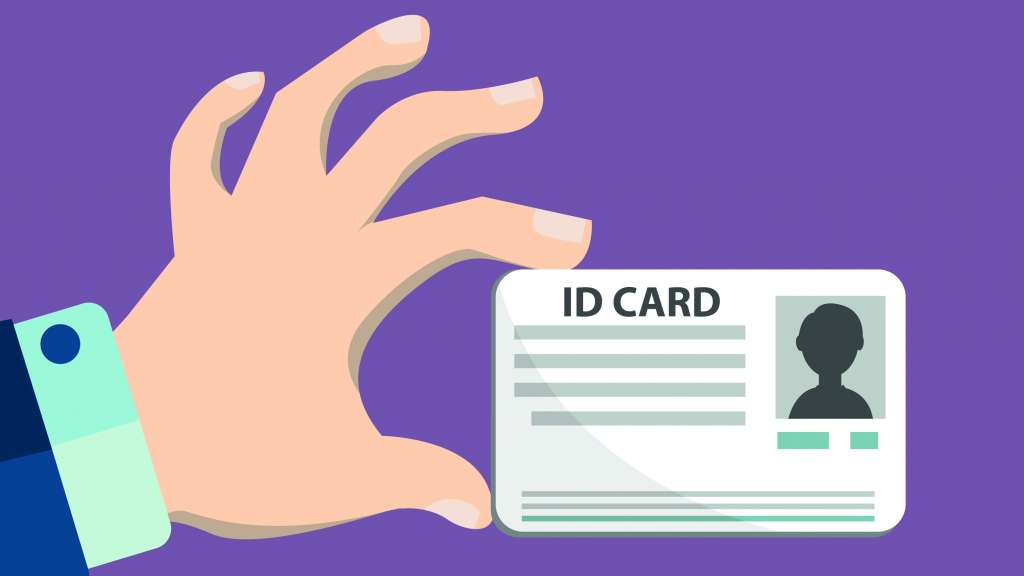
For the most part, medical marijuana card applicants must follow the same process & submit the requisite information regardless of the county they reside in.
The California Department of Public Health has set forth some ground rules which mandate that a county cannot set an application fee greater than $100.
In San Diego, the application fee is $44 & you’ll need the following items to begin the process of attaining a medical marijuana card:
- A completed Medical Marijuana Identification Card (MMIC) Application/Renewal Form.
- A valid government-issued photo ID, such as current and valid motor vehicle driver’s license or identification card issued by the California Department of Motor Vehicle (DMV). This includes United States Passport or a Veteran’s Administration Card.
- Proof of residency in San Diego County such as a current and valid California Motor Vehicle registration, a current rent/mortgage receipt or utility bill. This proof must have patient’s name bearing current physical address within the county. Please ensure that the documents are clear and legible with no erasures, whiteouts or any alterations.
- Written documentation or the CDPH 9044 form from your physician recommending the use of medical marijuana as appropriate for one or more serious medical conditions. This documentation must include an original signature and be on the physician’s business letterhead or on the “Written Documentation of Patient’s Medical Records” form (CDPH 9044). The medical condition is NOT to be listed.
- Your physician’s name, contact information and California medical license number.
- Non-refundable application fee of $44 (or $22 for Medi-Cal beneficiaries.) Acceptable forms of payment are cash, cashier’s checks, money orders–no personal checks are accepted. Credit and debit cards are accepted through VitalChek with a $2.50 convenience fee.
- Current Benefit Identification Card (BIC) and/or Medi-Cal card if you are a Medi-Cal beneficiary.
The documentation from your physician for your medical marijuana card can be your primary care physician or a specialist which could save you from office visit charges if your insurance covers it.
If you feel uncomfortable broaching the subject with your physician, there are numerous medical marijuana card evaluation locations throughout the county & even companies like Leafwell or NuggMD who handle the process online.
Just know that some of these evaluation centers could impose a heftier fee which unfortunately isn’t regulated by the state MMIC program, nor is their “official” medical marijuana card the same you’d receive from the county.
The county has 35 days from application to either approve & issue your card or deny your application.
If you’re approved, your medical marijuana card is valid for one year & you can opt to renew it through the same process once it expires.
If you’re denied, you can submit an appeal, but you will not get your application fee back.
The California Department of Public Health’s MMIC site has an in-depth FAQs page for any questions you might have & if you’re interested in starting your application for a medical marijuana card, you can download the forms online.
What medical conditions are recognized by the county?
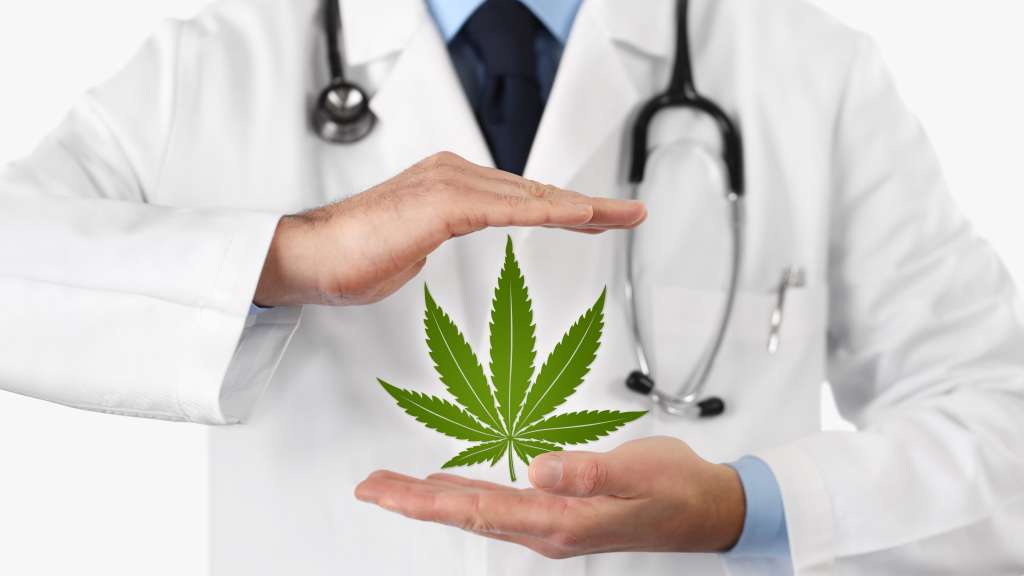
For the most part, a medical marijuana card applicant must suffer from what is deemed a serious medical condition which is largely dictated by Senate Bill 94.
San Diego County (as well as the state of California) lists the following as serious medical conditions:
- AIDS
- Anorexia
- Arthritis
- Cachexia
- Cancer
- Chronic Pain
- Glaucoma
- Migraine
- Seizures
- Severe nausea
- Persistent muscle spasms
- Any other chronic or persistent medical condition that either:
- limits their ability to conduct one or more major life activity as defined by the American Disability Act of 1990; or
- may cause harm if not alleviated.
What are the state reciprocity statues across the country?
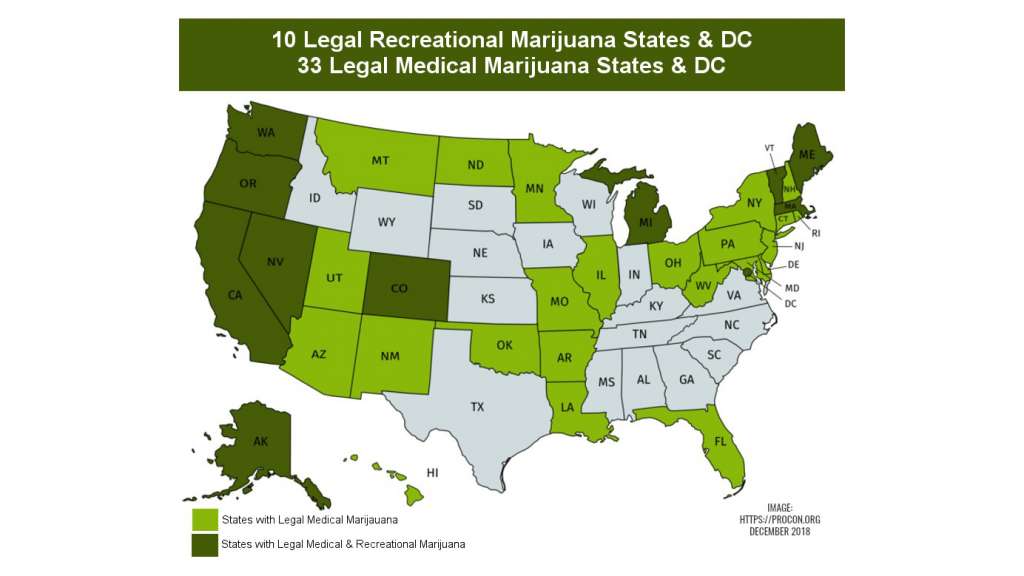
Whether it’s for business or leisure, we all tend to travel from time to time.
Legally, you are not allowed to bring cannabis products from California to another state- even if you have a medical marijuana card.
Unfortunately, California does not have any reciprocity with other states.
This means that anyone who holds a valid medical marijuana card from another state will not receive the same benefits & legal protections in California though they could purchase recreational cannabis if they are of age.
The data below from Americans for Safe Access is a great overview & resource for all your travel questions.
Click a state for more info:
Alaska
Arizona
Arizona allows visiting patients with a medical marijuana card or its equivalent to possess and use cannabis, but they are not eligible to obtain cannabis from any of Arizona’s dispensaries because they cannot be added to the electronic verification system that dispensaries are required to access before dispensing cannabis.
- Resident Patient Possession Limit: 2.5 oz of usable cannabis and, if authorized, 12 cannabis plants
- Resident Patient Purchase Limit: 2.5 oz of usable cannabis per 14-day period
- Visiting Patient Possession Limit: 2.5 oz of usable cannabis
- Visiting Patient Purchase Limit: N/A
Arkansas
Arkansas allows qualified visiting patients to use the state’s medical cannabis program. Non-residents and those who have been residing in Arkansas for fewer than 30 days are eligible.
The patients must possess a medical marijuana card or its equivalent from another jurisdiction and have a qualifying condition that has been approved in Arkansas.
Additionally, visiting patients must fill out the visiting patient application and pay a non-refundable $50.00 fee.
It is critical that patients who intend to travel to Arkansas plan ahead; the processing of a visiting patient card may take up to two weeks. Once issued, the card is valid for 30 days.
Once their applications have been approved, visiting patients can obtain cannabis in the state’s dispensaries if they show their AR registry card or its equivalent from their home state. The dispensary will retain a copy of the medical marijuana card as well as a second form of ID, such as a driver’s license, and will require visiting patients to sign a form affirming that they have been diagnosed by a healthcare provider to have a qualifying condition.
- Resident Patient Possession Limit: 2.5 oz of usable cannabis per 14 days
- Resident Patient Purchase Limit: 2.5 oz of usable cannabis per 14 days
- Visiting Patient Possession Limit: 2.5 oz of usable cannabis per 14 days
- Visiting Patient Purchase Limit: 2.5 oz of usable cannabis per 14 days
California
California has legalized the adult use of cannabis but does not recognize medical marijuana cards from other states, which poses a problem for minor patients given that they cannot access retail dispensaries.
While California doesn’t have a reciprocity program, patients should still travel with their medical marijuana cards (or their equivalents) in case of any potential interaction with law enforcement.
- Resident Patient Possession Limit: 8 oz of dried flower and 6 mature cannabis plants or 12 immature cannabis plants unless a physician recommends that these limits be higher to be consistent with patient needs
- Resident Patient Purchase Limit: 8 oz of dried flower or the plant conversion per day
- Visiting Patient Possession Limit: 1 oz of dried flower or 8g of concentrate
- Visiting Patient Purchase Limit: 1 oz of dried flower or 8g of concentrate may be purchased from retail dispensaries per day by those aged 21 or over
Colorado
Colorado has legalized the adult use of cannabis, but its medical marijuana card program is limited to residents.
Individuals who are at least 21 years old may purchase cannabis from a retail dispensary, but visiting minor patients cannot access cannabis in the state.
While Colorado doesn’t have a reciprocity program, patients should still travel with their medical marijuana cards (or their equivalents) in case of any potential interaction with law enforcement.
- Resident Patient Possession Limit: 2 oz
- Resident Patient Purchase Limit: 2 oz of dried flower and 6 immature cannabis plants or cannabis seeds per day unless a physician provides documentation that more is necessary
- Visiting Patient Possession Limit: 1 oz of dried flower, 8g of cannabis concentrate, or 800mg of cannabis edibles
- Visiting Patient Purchase Limit: 1 oz of dried flower, 8g of cannabis concentrate, or 800mg of cannabis edibles may be purchased from retail dispensaries per day by those aged 21 or over
District of Columbia
On August 8th, 2019, the mayor of the District of Columbia announced that the District would extend reciprocity to patients from any state that issues medical marijuana cards or their equivalents.
Prior to that date, DC extended reciprocity to patients from states with medical cannabis programs that were substantially equivalent to the District’s: Colorado, Connecticut, Delaware, Florida, Hawaii, Illinois, Maine, Maryland, Massachusetts, Michigan, Montana, New Hampshire, New Jersey, North Dakota, Ohio, Oregon, Pennsylvania, Rhode Island and Washington State.
The new states added by this rulemaking include Alaska, Arizona, Arkansas, California, Nevada, New Mexico, New York, and Vermont. As of August 8th, Louisiana, Minnesota, Oklahoma, and West Virgina medical marijuana cards are under review but are expected to be accepted in the District’s program.
Visiting patients may present their unexpired medical cannabis cards (or their equivalents) and another form of unexpired photo ID at any of DC’s medical dispensaries in order to obtain cannabis.
Note that dispensaries will not be permitted to dispense medical cannabis to visiting patients if the DC Department of Health determines that there is a shortage of medical cannabis or if the real-time electronic records system is inactive.
- Resident Patient Possession Limit: 4 oz of dried flower or its equivalent when sold in any other form
- Resident Patient Purchase Limit: 4 oz of dried flower or its equivalent per 30 days
- Visiting Patient Possession Limit: 4 oz of dried flower or its equivalent when sold in any other form
- Visiting Patient Purchase Limit: 4 oz of dried flower or its equivalent per 30 days
Guam
Guam legalized medical cannabis in 2014 and the adult use of cannabis in 2019, but dispensaries are not yet operational.
Patients and persons 21 years of age and older and permitted to cultivate their own cannabis; patients must register with and pay a fee to the Department of Public Health and Social Services (DPHSS) for permission to cultivate, but no such requirement exists for those taking advantage of the personal cultivation provisions of the 2019 cannabis legalization bill.
That legislation also legalizes the transfer of up to one ounce of cannabis, eight grams of concentrate, or up to 800mg of THC in cannabis-infused products to another person who is at least 21 years old without remuneration.
Until dispensaries are operational, it seems as though visiting patients who are at least 21 years old would have to attempt to procure gifted cannabis from those who cultivate it at home and that minors would be unable to access it.
While minors can be registered as patients, the 2019 cannabis legalization law does not provide for the transfer of cannabis to those under the age of 21, regardless of patient status. Once dispensaries are open, access to medical cannabis will become easier for visitors.
In 2018, Guam’s medical cannabis law was amended to remove the residency requirement for qualified patients. Visiting patients may register with the DPHSS by obtaining a written certification from a Guamanian healthcare practitioner, completing a qualified patient registration form, and paying the $15 registration fee.
Cards will not be required to participate in the program.
Qualified patients that have registered with the DPHSS may legally possess 2.5 oz of dried cannabis or its equivalent; adults 21 years of age and older may possess up to 1 oz or its equivalent.
- Resident Patient Possession Limit: 2.5 oz of dried cannabis or its THC product equivalent
- Resident Patient Purchase Limit: Once dispensaries are operational, 2.5 oz of dried cannabis or its THC product equivalent per 14-day period unless higher amount approved by physician
- Visiting Patient Possession Limit: 2.5 oz of dried cannabis or its THC product equivalent
- Visiting Patient Purchase Limit: Once dispensaries are operational, 2.5 oz of dried cannabis or its THC product equivalent per 14 -day period unless higher amount approved by physician
Hawaii
Hawaii provides a comprehensive online application process for out-of-state patients who are certified in their home state as having a debilitating medical condition as defined in Hawaii State Law to obtain a Hawaii 329 Registration Card, which grants access to medical cannabis dispensaries.
A visiting patient who wishes to obtain a 329 card must submit his or her valid, unexpired medical marijuana card and an additional form of state-government-issued ID from the same jurisdiction that issued, and bearing the same name as, the medical marijuana card.
If the out-of-state medical marijuana card does not have an expiration date, the patient will be required to submit additional documentation.
Unlike some other jurisdictions, Hawaii will not accept a medical cannabis certification/recommendation in lieu of a medical marijuana card.
Note that passports and military ID cards are not accepted forms of ID for the purposes of obtaining a 329 card.
Hawaii 329 Registration Cards for out-of-state patients are valid for 60 days, and the patient may apply for a 329 card up to 60 days before the requested start date. Visiting patients are limited to two 60-day terms per calendar year, and there is a non-refundable fee of $49.50 per application.
The Hawaii Department of Health has put together an instructional video and a checklist for visiting patients and urges visiting patients to ensure that the island they are traveling to has a dispensary with the products they need, as traveling between islands could involve crossing a federal waterway. This should be done prior to submitting an application.
- Resident Patient Possession Limit: 4 oz of usable cannabis or its equivalent
- Resident Patient Purchase Limit: 4 oz of usable cannabis or its equivalent per 15-day period
- Visiting Patient Possession Limit: 4 oz of usable cannabis or its equivalent
- Visiting Patient Purchase Limit: 4 oz of usable cannabis or its equivalent per 15-day period
Illinois
Illinois does not extend reciprocity to medical cannabis patients.
However, beginning January 1, 2020, non-residents will be able to purchase and possess up to 15 grams of cannabis flower, 2.5 grams of cannabis concentrate, and 250 mg of THC in cannabis-infused products.
Illinois residents who are not medical cannabis patients will be able to purchase and possess double these amounts.
While Illinois doesn’t have a reciprocity program, patients should still travel with their medical marijuana cards (or their equivalents) in case of any potential interaction with law enforcement.
- Resident Patient Possession Limit: 2.5 oz of usable cannabis, unless a physician waiver is obtained
- Resident Patient Purchase Limit: 2.5 ounces of usable cannabis per 14 days, unless a physician waiver is obtained
- Visiting Patient Possession Limit: Beginning January 1, 2020, adults 21 and over may possess 15 grams of cannabis flower, 250 mg of THC-infused edible cannabis products, and 2.5 grams of concentrated cannabis product
- Visiting Patient Purchase Limit: Beginning January 1, 2020, adults 21 and over may purchase 15 grams of cannabis flower, 250 mg of THC-infused edible cannabis products, or 2.5 grams of concentrated cannabis product
Maine
Medical cannabis patients from the jurisdictions to which Maine extends reciprocity may use their home-jurisdiction medical marijuana cards and photo identification to purchase cannabis through Maine’s medical program.
As of November 13, 2019, the 25 jurisdictions to which Maine extends reciprocity include: Alaska, Arizona, Arkansas, California, Connecticut, the District of Columbia, Florida, Hawaii, Illinois, Iowa, Massachusetts, Michigan, Minnesota, Montana, Nevada, New Hampshire, New Jersey, New Mexico, New York, North Dakota, Oklahoma, Oregon, Rhode Island, Vermont, and Washington.
Once the state’s adult-use framework is in place, all patients will be able to obtain cannabis while in Maine.
- Resident Patient Possession Limit: 8 pounds of harvested cannabis (which includes all prepared forms), 6 mature cannabis plants, 12 immature cannabis plants, and unlimited cannabis seedlings
- Resident Patient Purchase Limit: 2.5 oz of usable cannabis
- Visiting Patient Possession Limit: 2.5 oz of harvested cannabis in a 15-day period
- Visiting Patient Purchase Limit: 2.5 oz of usable cannabis, cannabis products, or a combination thereof every 15 days
Massachusetts
Massachusetts does not recognize medical marijuana cards issued by other jurisdictions, but individuals who are at least 21 years old may obtain cannabis through the state’s adult-use market.
Unfortunately, this leaves the needs of visiting minor patients unaddressed.
While Massachusetts doesn’t have a reciprocity program, patients should still travel with their medical marijuana cards (or their equivalents) in case of any potential interaction with law enforcement.
- Resident Patient Possession Limit: 10 oz of cannabis or its equivalent every 60 days unless a healthcare provider determines and certifies that a different amount is required
- Resident Patient Purchase Limit: 10 oz of cannabis or its equivalent every 60 days unless a healthcare provider determines and certifies that a different amount is required
- Visiting Patient Possession Limit: 1 oz of cannabis on one’s person if age 21 or over, except not more than 5g may be in the form of a cannabis concentrate
- Visiting Patient Purchase Limit: 1 oz of cannabis or 5g of cannabis concentrate may be purchased from retail dispensaries per day by those aged 21 or over
Michigan
Michigan gives the same force and effect to medical marijuana cards issued outside of the state as it does to its own cards, meaning that patients may use their home-jurisdiction medical marijuana cards and photo IDs to make purchases at the state’s medical cannabis dispensaries.
Michigan also has legalized the adult use of cannabis but has yet to implement the framework necessary for such sales.
- Resident Patient Possession Limit: 2.5 oz of usable cannabis or its equivalent and 12 cannabis plants
- Resident Patient Purchase Limit: 2.5 oz of usable cannabis per day, not to exceed 10 oz per month
- Visiting Patient Possession Limit: 2.5 oz of usable cannabis or its equivalent and 12 cannabis plants
- Visiting Patient Purchase Limit: 2.5 oz of usable cannabis per day, not to exceed 10 oz per month
Nevada
Nevada allows reciprocity through its medical program and also permits the adult use of cannabis.
Non-resident patients may use their home-jurisdiction medical marijuana cards and photo IDs to purchase medical cannabis from dispensaries.
The purchase and possession limits are higher for medical patients than for other adult consumers of cannabis.
- Resident Patient Possession Limit: 2.5 oz of usable cannabis per 14-day period, an amount of edible cannabis products and cannabis-infused products that is equivalent to 2.5 oz of usable cannabis (with a cap of 10g of THC) per 14-day period, and 12 cannabis plants
- Resident Patient Purchase Limit: 2.5 oz of usable cannabis per 14-day period and an amount of edible cannabis products and cannabis-infused products that is equivalent to 2.5 oz of usable cannabis (with a cap of 10g of THC) per 14-day period
- Visiting Patient Possession Limit: 2.5 oz of usable cannabis per 14-day period and an amount of edible cannabis products and cannabis-infused products that is equivalent to 2.5 oz of usable cannabis (with a cap of 10g of THC) per 14-day period
- Visiting Patient Purchase Limit: 2.5 oz of usable cannabis per 14-day period and an amount of edible cannabis products and cannabis-infused products that is equivalent to 2.5 oz of usable cannabis (with a cap of 10g of THC) per 14-day period
New Hampshire
Patients visiting New Hampshire from another jurisdiction may possess cannabis but are unable to purchase it in the state’s dispensaries.
To benefit from New Hampshire’s medical cannabis law, the visiting qualifying patient must produce a medical marijuana card (or its equivalent) from another state and a statement from their healthcare provider stating that the patient has a qualifying condition that is recognized by New Hampshire law.
The visiting patient provisions only apply to those who are not residents or to residents who have been in the state for fewer than 30 days.
Visiting patients cannot receive cannabis via the state’s gifting provisions or cultivate medical cannabis in New Hampshire.
- Resident Patient Possession Limit: 2 oz of usable cannabis
- Resident Patient Purchase Limit: 2 oz of usable cannabis every 10 days
- Visiting Patient Possession Limit: 2 oz of usable cannabis
- Visiting Patient Purchase Limit: N/A
New Mexico
On August 5, 2019, a New Mexico judge ruled that the state’s Department of Health has to issue medical marijuana cards to non-residents because of how the state redefined “qualified patient” when it passed amended the Compassionate Use Act in March 2019.
However, the Governor, Michelle Lujan Grisham, has intervened in this lawsuit on the premise that it was not the intent of the New Mexico regulations to allow any non-resident to obtain a medical marijuana card in the state.
Rather, the intent was to provide a traditional reciprocity program through which residents from other states could access New Mexico’s program with a medical marijuana card or its equivalent from another state.
This case is ongoing, so it is important to follow updates on the New Mexico Department of Health’s website. Reciprocity regulations must be in place by March 1, 2020.
New Mexico expresses possession limits in units. One unit of usable cannabis is equivalent to one gram of dried usable cannabis plant material or to 0.2 grams (200 milligrams) of THC for cannabis-derived products.
- Resident Patient Possession Limit: 230 units per 90-day period
- Resident Patient Purchase Limit: 230 units per 90-day period
- Visiting Patient Possession Limit: TBD
- Visiting Patient Purchase Limit: TBD
Oklahoma
Oklahoma offers temporary patient licenses for both minor and adult visiting patients. The temporary licenses are valid for 30 days and may be renewed, but the expiration date of the temporary license cannot be later than the expiration date of the patient’s medical marijuana card.
To obtain a temporary ID card, a patient must submit a digital color copy of their home-jurisdiction medical marijuana card and a digital color copy of a driver’s license, passport, or state-issued ID.
The visiting patient also must submit a passport-style photograph and pay a non-refundable $100 application fee by credit or debit card. The processing of a temporary patient license application can take up to 14 days, so it is important for travelers to plan ahead.
Detailed instructions for obtaining a temporary card are available on the Oklahoma Medical Marijuana Authority’s website.
- Resident Patient Possession Limit: 3 oz of cannabis on one’s person; 1 oz of cannabis concentrate; 72 oz of cannabis edibles; 6 mature cannabis plants; 6 cannabis seedlings; and 8 oz of cannabis in one’s residence
- Resident Patient Purchase Limit: 3 oz of usable cannabis, 1 oz of cannabis concentrate, 72 oz of cannabis-infused products, 6 mature cannabis plants, and 6 cannabis seedlings in a single transaction
- Visiting Patient Possession Limit: 3 oz of cannabis on their person; 1 oz of cannabis concentrate; 72 oz of cannabis edibles; 6 mature cannabis plants; 6 cannabis seedlings; and 8 oz of cannabis in their residence
- Visiting Patient Purchase Limit: 3 oz of usable cannabis, 1 oz of cannabis concentrate, 72 oz of cannabis-infused products, 6 mature cannabis plants, and 6 cannabis seedlings in a single transaction
Oregon
Oregon does not recognize medical marijuana cards from other states, but individuals who are at least 21 years of age may purchase cannabis in the state’s retail dispensaries. Unfortunately, this leaves the needs of visiting minor patients unaddressed.
While Oregon doesn’t have a reciprocity program, patients should still travel with their medical marijuana cards (or their equivalents) in case of any potential interaction with law enforcement.
- Resident Patient Possession Limit: 24 oz of usable cannabis, 16 oz of cannabinoid product in solid form, 72 oz of cannabinoid product in liquid form, 16 oz of cannabinoid concentrate, 1 oz of cannabinoid extracts, 6 mature cannabis plants, and 12 immature cannabis plants
- Resident Patient Purchase Limit: 24 oz of usable cannabis, 16 oz of a medical cannabinoid product in solid form, 72 oz of a medical cannabinoid product in liquid form, 16 oz of cannabinoid concentrate (whether sold alone or contained in an inhalant delivery system), 5g of a cannabinoid extract (whether sold alone or contained in an inhalant delivery system), 4 immature cannabis plants, and 50 cannabis seeds in one purchase or within one day
- Visiting Patient Possession Limit: 1 oz of usable cannabis on their person in public, 8 oz of usable cannabis in their home, 16 oz of a cannabinoid product in solid form, 72 oz of a cannabinoid product in liquid form, 5g of cannabinoid extracts or concentrates (whether sold alone or contained in an inhalant delivery system), 4 cannabis plants, and 10 cannabis seeds
- Visiting Patient Purchase Limit: 1 oz of usable cannabis, 16 oz of a cannabinoid product in solid form, 72 oz of a cannabinoid product in liquid form, 5g of cannabinoid extracts or concentrates (whether sold alone or contained in an inhalant delivery system), 4 immature cannabis plants, and 10 cannabis seeds may be purchased from retail dispensaries per day by those aged 21 or over
Puerto Rico
Puerto Rico extends reciprocity to medical cannabis patients with unexpired medical cannabis recommendations and medical marijuana cards from U.S. jurisdictions for up to 30 days as long as those jurisdictions maintain a database that allows verification of patient status and make such information available to Puerto Rican authorities and dispensaries.
Puerto Rico does not impose a residency requirement for qualifying patients, meaning that non-resident patients may obtain a Puerto Rican medical marijuana card by visiting an authorized healthcare provider and completing the application process.
Given that reciprocity is only extended for up to 30 days, non-resident patients who need access to medical cannabis beyond that period must be certified as qualified patients under the laws and regulations of Puerto Rico.
Visitors to Puerto Rico from foreign jurisdictions or U.S. jurisdictions where no medical cannabis identification is issued may apply for a Puerto Rican medical marijuana card after visiting an authorized healthcare provider. If the applicant qualifies as a medical cannabis patient, the applicant’s medical marijuana card will be valid for a maximum duration of 30 days.
The act of smoking cannabis is strictly forbidden, even for medical patients, and while other inhalable products are available, vaporizing cannabis flowers (buds) is only authorized if the patient’s healthcare provider has determined that vaporization is the ideal method of administration, if the healthcare provider has determined that no other suitable alternatives or adequate treatments exist, or if the patient has been diagnosed with a terminal illness.
Dispensaries are prohibited from supplying cannabis flowers to any patient whose medical cannabis recommendation does not explicitly authorize vaporization of cannabis floral material.
It is unclear as to whether non-resident patients would be able to obtain cannabis flowers without first obtaining a Puerto Rican medical marijuana card.
Non-resident patients who are unwilling or unable to obtain a Puerto Rican medical marijuana card and who rely on access to cannabis flowers are advised to obtain a note to that effect from their healthcare provider to present to dispensary staff along with a copy of their medical cannabis recommendation and home-jurisdiction medical marijuana card in case the note would constitute sufficient documentation for the dispensing of cannabis flowers.
Puerto Rico defines one ounce of cannabis flower as being equivalent to eight grams of THC in concentrate form or 800 milligrams of THC in edible products.
- Resident Patient Possession Limit: 30-day supply
- Resident Patient Purchase Limit: 1 oz of cannabis flower or its equivalent per day
- Visiting Patient Possession Limit: 30-day supply
- Visiting Patient Purchase Limit: 1 oz of cannabis flower or its equivalent per day
Rhode Island
Medical marijuana cards (or their equivalents) issued under the laws of other U.S. jurisdictions have the same force and effect as medical marijuana cards issued by the Rhode Island Department of Health.
Therefore, visiting medical cannabis patients from elsewhere in the United States may access Rhode Island’s compassion centers (dispensaries) with their home-jurisdiction medical marijuana cards and another form of photo ID.
Out-of-state patients will be required to complete a compassion center intake form to be entered into the compassion center’s tracking system.
- Resident Patient Possession Limit: 2.5 oz of dried usable cannabis, 12.5 oz of wet cannabis, 12 mature cannabis plants, and 12 cannabis seedlings (personal cultivation is permitted when the patient or caregiver obtains a Plant Tag Certificate from the Department of Business Regulation)
- Resident Patient Purchase Limit: 2.5 oz of usable cannabis or its equivalent during a 15-day period
- Visiting Patient Possession Limit: 2.5 oz of dried usable cannabis, 12.5 oz of wet cannabis, 12 mature cannabis plants, and 12 cannabis seedlings (personal cultivation is permitted when the patient or caregiver obtains a Plant Tag Certificate from the Department of Business Regulation)
- Visiting Patient Purchase Limit: 2.5 oz of usable cannabis or its equivalent during a 15-day period
Washington State
The adult use of cannabis is legal in Washington State, but out-of-state medical marijuana cards are not recognized.
Patients who are at least 21 years old may obtain cannabis through Washington’s adult-use marketplace; unfortunately, this leaves the needs of visiting minor patients unaddressed.
- Resident Patient Possession Limit: 3 oz of usable cannabis, 48 oz of cannabis-infused product in solid form, 216 oz of cannabis-infused product in liquid form, or 21g of cannabis concentrate. Recognized medical marijuana card holders may also grow 6 plants and possess 8 oz of usable cannabis produced by their plants; if these amounts are insufficient, a healthcare practitioner may authorize the cultivation of 15 plants and the possession of 16 oz produced by their plants
- Resident Patient Purchase Limit: 3 oz of usable cannabis, 48 oz of cannabis-infused product in solid form, 216 oz of cannabis-infused product in liquid form, or 21g of cannabis concentrate
- Visiting Patient Possession Limit: 1 oz of usable cannabis, 16 oz of cannabis-infused product in solid form, 72 oz of cannabis-infused product in liquid form, or 7g of cannabis concentrate
- Visiting Patient Purchase Limit: 1 oz of usable cannabis, 16 oz of cannabis-infused product in solid form, 72 oz of cannabis-infused product in liquid form, or 7g of cannabis concentrate may be purchased by those aged 21 or over
Wrapping up
We hope you've found this information useful should you consider applying for a California medical marijuana card.
Check out some of our other posts on subjects like the differences between THC and CBD, topicals or vape cartridge safety to stay in the know.
Drop us a comment or question below & we'll get back to you!


